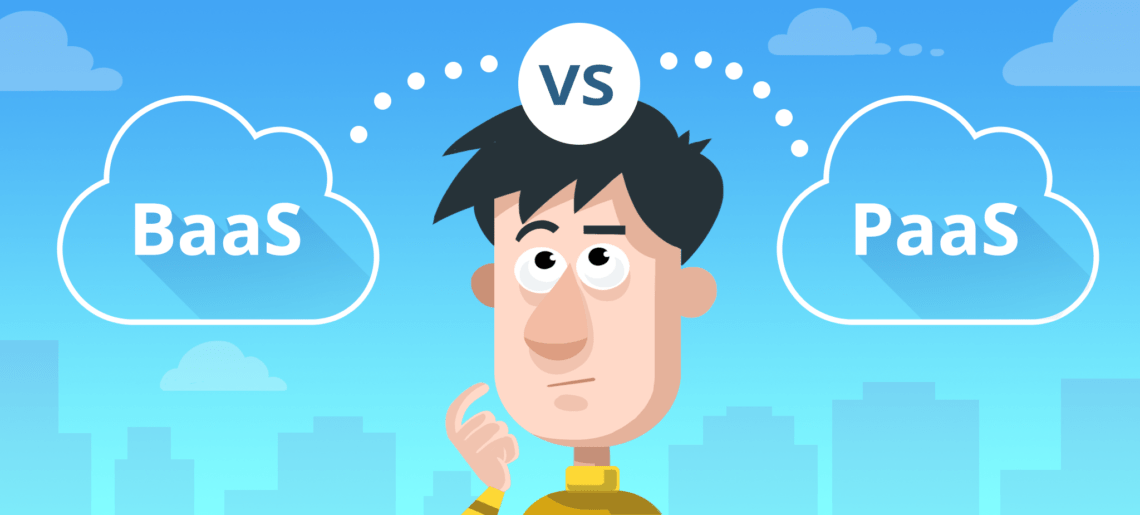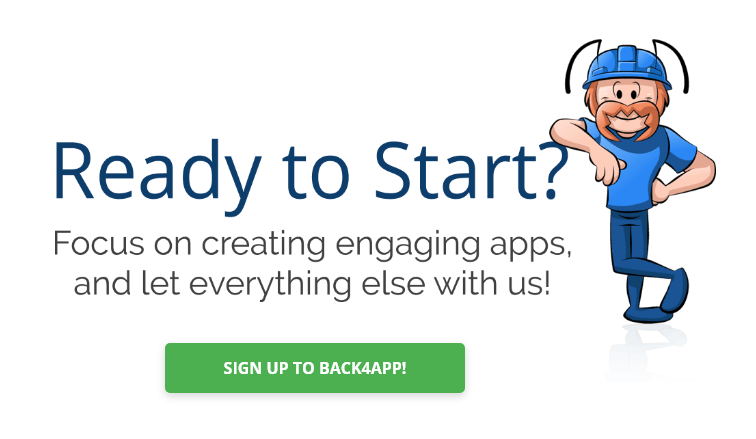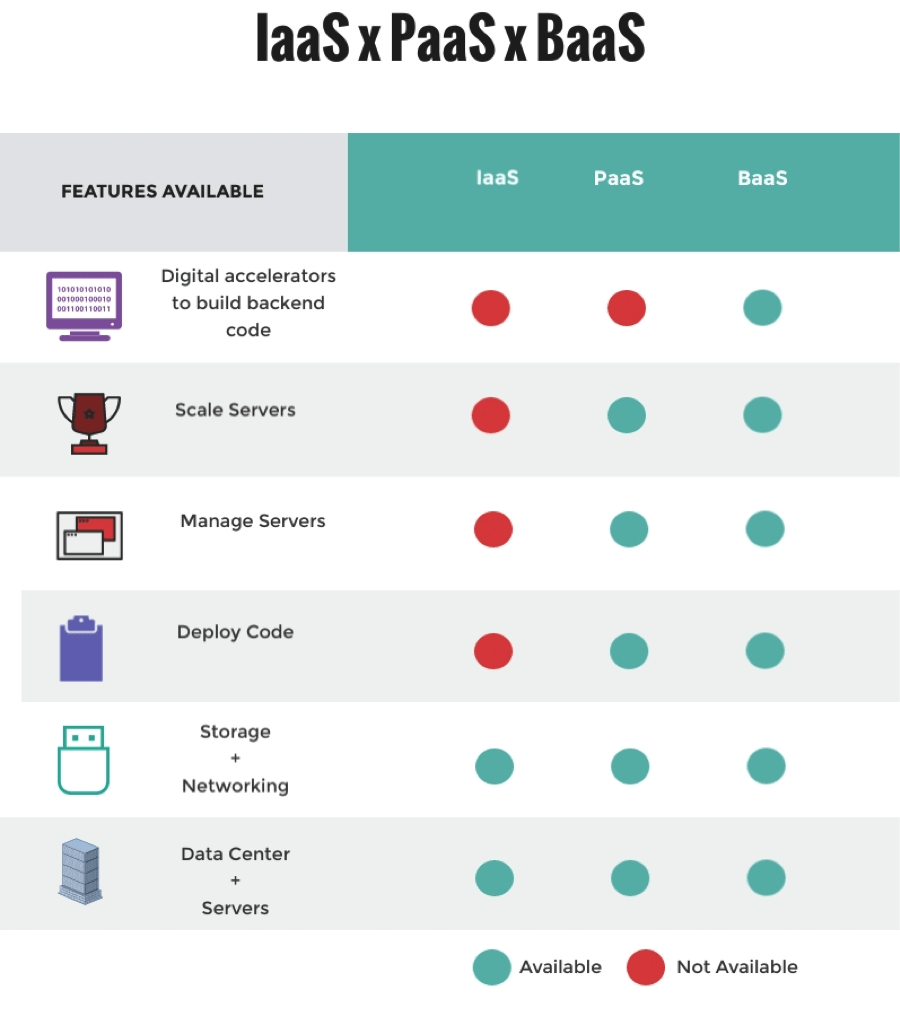Baas vs PaaS: Which is a better option?

Contents
- 1 Baas vs PaaS – Understand the differences
- 2 What is a BaaS – Backend as a Service?
- 3 What is a PaaS – Platform as a Service
- 4 Differences between PaaS vs BaaS
- 5 Examples of BaaS Companies
- 6 Back4App
- 7 Firebase
- 8 Backendless
- 9 Examples of PaaS Companies
- 10 Heroku
- 11 Engine Yard
- 12 General FAQ
- 13 What is a Backend as a Service – BaaS?
- 14 What is a Platform as a Service – PaaS?
- 15 What are the differences between BaaS and PaaS?
Baas vs PaaS – Understand the differences
Most commonly, it becomes quite confusing for people to understand the world of BaaS vs PaaS terminologies.
Suppose you are the one who is connected with the industry of development in any way. In that case, it is imperative for you at present to understand the difference between the two most beautiful and essential terminologies of the world of cloud computing. These terminologies are meant to change the traditional ways of software development, whether web or mobile application development.
Keep reading to have a look at detailed information regarding BaaS vs Paas.
What is a BaaS – Backend as a Service?
BaaS is a fantastic cloud service model in which application developers typically outsource their entire behind-the-scenes aspects of a mobile or web application.
With the help of BaaS, they only have to focus and maintain the front-end or user-side services. This model acts as middleware and provides a better opportunity for developers to connect their applications with cloud services. This model is designed to automate the processes of backend side development with its ready-to-use features.
With the help of the BaaS model, organizations can give the responsibility of the backend services to a third party.

What is a PaaS – Platform as a Service
PaaS is also known as Platform as a Service. PaaS is a complete environment for development and deployment in the cloud computing world. It contains the perfect resources to make it easier for you to develop everything ranging from more straightforward cloud-based software solutions to cloud-based, sophisticated enterprise applications.
In PaaS, service providers deliver their clients a platform that enables them to create, manage, and run applications without maintaining and building infrastructures and software development processes typically required in the development processes.
This concept is much similar to the idea of serverless computing, in which a cloud computing services provider manages and runs the server along with the allocations of resources in the best possible way.
PaaS includes storage, servers, networking, middleware business intelligence services, development tools, real-time database management systems, and much more in this regard.
Differences between PaaS vs BaaS
A PaaS can eliminate the expenses of purchasing, maintaining, and configuring infrastructure. In contrast, BaaS can help developers manage the backend services more quickly and simply in the best possible way. Generally speaking, here is a simple way to understand the differences:
PaaS will render mechanisms like:
- CDN – Content distribution networks
- Automated deployment
- Load balancers
On the other hand, a PaaS will not provide:
- Database management
- Business Logic
- Frontend Code
BaaS will provide mechanisms like:
- Out of the box backend features like email notification, authentication, push-notifications, social login, etc
- Database management
- Serverless environment
On the other hand, a BaaS will not provide:
- Frontend code
- The same level of flexiblity of a PaaS
- Server level access
Both of the terminologies come with their own benefits. Even when it comes to preferring the use of PaaS or BaaS, the decision depends on the needs of the development process and the requirements that users have to fulfill using these solutions.
Examples of BaaS Companies
Various organizations are offering multiple BaaS services. Here are some of the most amazing BaaS services which you must know:
Back4App
It is an exceptional hosting service provider for parse services. It offers the best services to develop the backend of the applications and helps the developers in faster-creating Back4App.
It provides flexible and saleable services that are pretty easier to use. Even more, you can also experience a 24/7 support service from Back4App.
Features:
- Data management dashboard
- Private cloud options
- Real-time database
- Multitenant dashboard
- Two-factor authentication
- Logs viewer
- Email verification
- Transfer App & clone app
- Automated backups
Firebase
Firebase is one of the best BaaS, which was started as a YC11 startup and later grew up as a next-generation platform for application development. Firebase is allowing users to craft fantastic user experiences.
You do not have to manage the backend because Firebase is your Datastore, API, and server simultaneously.
Features:
- Real-time database
- File storage providence
- Email and password authentication
- Easy to use hosting
- Social media integration
- Built-in security features
Backendless
It is an effective BaaS provider. Backendless consists of a complete toolset that is designed to manage backend services quickly and simply. With the pro version of the Backendless, users can run the framework on their own servers in the best possible way.
Features:
- Push notifications
- API
- Geolocation
- Real-time database
- Email marketing
Examples of PaaS Companies
Heroku
Heroku is the most well know platform as a service. It has been running since 2007, and it is now part of Salesforce.
Features:
- Multiple programming languages
- Streamline and simplify the process of development, deployment, configuration, and tuning.
- Effective to scale and manage applications
- Top-centric style of software delivery
Engine Yard
Engine Yard contains years of experience in providing services of managed PaaS.
It is one of the most successful PaaS solutions that users can access because the company is constantly working to create solutions for its users more effectively. It is a perfect option for developers building applications based on Ruby on Rails, PHP, and Node.js.
Features
- Dedicated instances
- 3rd-party services integration
- Lots of control over instances of the virtual machine
- It is providing core building blocks for flexible and secure PHP applications.

General FAQ
What is a Backend as a Service – BaaS?
BaaS is a cloud service model in which application developers normally outsource there entire behind the scene aspects of a mobile or web application. A BaaS vendor provides ready to use building blocks like authentication, notifications, database, and APIs.
What is a Platform as a Service – PaaS?
PaaS is a complete environment for development and deployment in the cloud computing world. In PaaS, service providers are delivering their clients platform which enables them to create, manage and run applications without any need for maintaining and building infrastructures and software development processes that are normally required in the development processes.
What are the differences between BaaS and PaaS?
PaaS will render mechanisms like:
– CDN – Content distribution networks
– Automated deployment
– Load balancers
On the other hand, a PaaS will not provide:
– Database management
– Business Logic
– Frontend Code
BaaS will provide mechanisms like:
– Backend features like email notification, authentication, push-notifications, social login, etc
– Database management
– Serverless environment
On the other hand, a BaaS will not provide:
– Frontend code
– The same level of flexiblity of a PaaS
– Server level access




